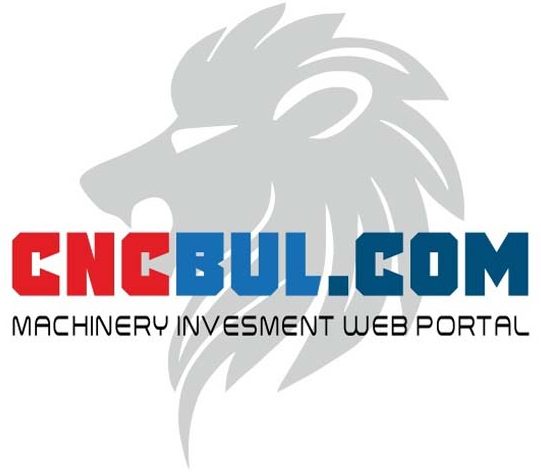What are differences between CNC Deep Hole Drilling Machine and CNC Deep Hole Borer Machine?
CNC deep hole drilling machines and CNC deep hole borer machines are specialized types of equipment used for creating deep holes in various materials. Despite their similar primary function, they have distinct differences in terms of their design, functionality, and applications. Here is a detailed explanation of the differences between these two types of machines:
1. Design and Structure
CNC Deep Hole Drilling Machine:
- Purpose: Specifically designed for drilling deep holes.
- Spindle and Tooling: Equipped with high-speed spindles that are optimized for deep hole drilling. The tools are designed to provide high accuracy and smooth finish.
- Machine Bed: Generally, these machines have a longer bed to accommodate the length of the workpiece and the depth of the hole.
- Coolant System: They have sophisticated coolant systems to ensure proper lubrication and cooling of the drill bit, which is crucial for deep hole drilling.
- Stability and Precision: Built to provide high stability and precision, minimizing the risk of drill bit deviation.
CNC Deep Hole Borer Machine:
- Purpose: Designed for boring deep holes, which involves enlarging or finishing an existing hole.
- Spindle and Tooling: Features a more robust spindle system to handle the forces involved in boring. The tooling is designed to enlarge and finish the hole rather than initiate it.
- Machine Bed: The bed is designed to handle the additional forces generated during the boring process. It might be similar in length to deep hole drilling machines but is more robust.
- Coolant System: Equipped with a high-capacity coolant system to manage the increased heat and chips produced during the boring process.
- Stability and Precision: Emphasizes stability to ensure the precision of the boring process, which is crucial for maintaining tolerances and surface finish.
2. Functionality
CNC Deep Hole Drilling Machine:
- Drilling Depth: Capable of drilling very deep holes with high length-to-diameter ratios.
- Hole Diameter: Typically used for smaller diameter holes compared to boring machines.
- Process: The process involves starting with a solid workpiece and creating a hole using a specialized deep hole drill bit. Techniques like gun drilling or BTA (Boring and Trepanning Association) drilling are common.
- Material Removal Rate: Focused on accuracy and smooth surface finish rather than high material removal rates.
CNC Deep Hole Borer Machine:
- Drilling Depth: Can also handle deep holes but is primarily used to enlarge and finish existing holes.
- Hole Diameter: Suitable for larger diameter holes compared to drilling machines.
- Process: Starts with a pre-drilled or cast hole and enlarges it to the desired diameter. The process can involve multiple passes to achieve the final dimensions and surface finish.
- Material Removal Rate: Can achieve higher material removal rates compared to deep hole drilling due to the more robust tooling and machine structure.
3. Applications
CNC Deep Hole Drilling Machine:
- Industries: Widely used in industries such as aerospace, oil and gas, automotive, and mold making where precision deep holes are required.
- Components: Commonly used for producing components like aircraft landing gear, hydraulic cylinders, fuel injection systems, and molds.
- Material: Can handle a wide range of materials, including metals and alloys, with high precision.
CNC Deep Hole Borer Machine:
- Industries: Commonly used in heavy industries like mining, shipbuilding, and large-scale manufacturing where larger and precise holes are required.
- Components: Typically used for boring engine blocks, large gears, and heavy-duty mechanical components.
- Material: Often used for materials that require robust machining capabilities due to their size and the forces involved in the boring process.
4. Operational Differences
CNC Deep Hole Drilling Machine:
- Speed and Feed Rates: Operates at higher spindle speeds and lower feed rates suitable for deep drilling.
- Tool Wear: Tool wear management is critical due to the depth of the hole and the potential for deviation or tool breakage.
- Setup and Fixturing: Requires precise setup and fixturing to ensure the drill bit does not wander and the hole remains straight.
CNC Deep Hole Borer Machine:
- Speed and Feed Rates: Operates at lower spindle speeds and higher feed rates suitable for boring.
- Tool Wear: Tool wear is managed differently, focusing on maintaining the quality of the enlarged hole.
- Setup and Fixturing: Requires robust fixturing to handle the forces involved in boring and ensure the precision of the final hole dimensions.
Summary
In summary, while both CNC deep hole drilling machines and CNC deep hole borer machines are designed for creating deep holes, they differ significantly in their design, functionality, and applications. Drilling machines are specialized for initiating deep, small-diameter holes with high precision, whereas boring machines are designed to enlarge and finish pre-existing holes, often handling larger diameters and higher material removal rates. Understanding these differences is crucial for selecting the right machine for specific industrial applications.

